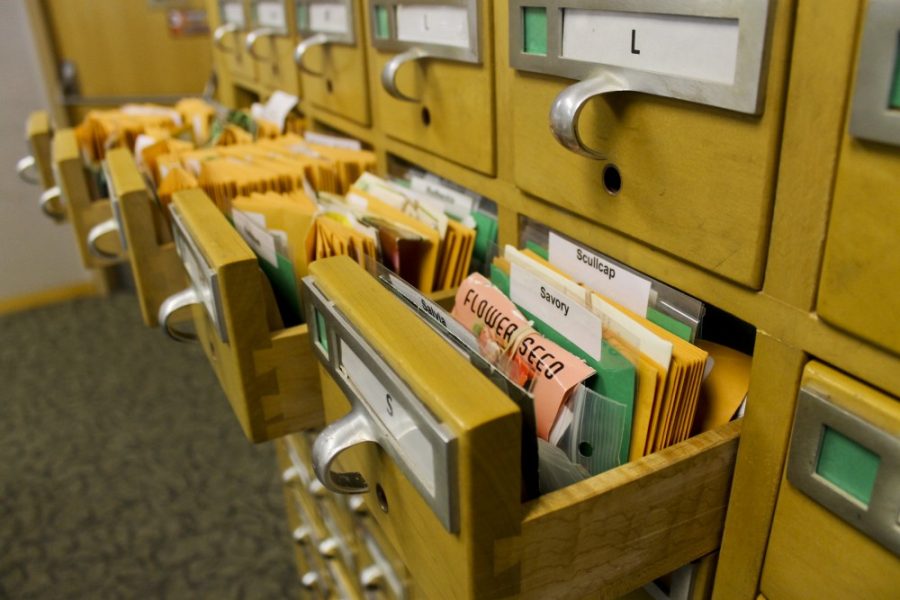In a garden behind Homer Davis Elementary School, three dark-purple, perfectly-sized eggplants wait to be picked. Hidden behind some leaves nearby are some oversized zucchini, while tall tomato plants also occupy the rectangular plot. This is the home of the Seed Library, a project of the Pima County Public Library.
The Seed Library, which opened in January, is a collection of seeds that patrons can check out in a process similar to book-borrowing, but without the due-dates or late-fees. Instead, the intention is for the patron to grow the seeds and then return some after the growing season.
Justine Hernandez, librarian and founder of the Seed Library, got the idea for the project after an outreach event and speaking with community members about their interest in food production.
“The thing that’s really beautiful about a Seed Library is that in a sense you are backpedaling a little bit,” said Hernandez. “It’s about the food but it’s also about creating something that is adapted and really better-suited for our climate.”
The program is still developing and is focusing on getting more people involved, Hernandez said.
“I want it to be more accessible to everybody and a larger section of the community,” said Hernandez, who explained that the Seed Library is now connected with the library catalog in order to make it easier to search and find seeds.
The University of Arizona’s Bureau of Applied Research in Anthropology is assisting the libraries by documenting and further developing the Seed Library.
Ashley Stinnet, an intern with BARA and a doctoral candidate in anthropology, is working on a two-minute video that will be available for library patrons as a resource on the role of the Seed Library in the community. Stinnet is also working on a 30-minute film that includes research and interviews, which is expected to be completed by December.
“We are there to reinsure the community part is there and stays connected,” said Stinnet. “The skills that anthropologists have are there to ensure the Seed Library is successful and this last for its lifetime.”
Pima County librarian Susannah Connor also emphasized the importance of maintaining the educational component of the Seed Library. She said that seed-saving is not easy and that part of the mission of the library is to “nurture gardeners from beginning to advanced.”
“We want it (the Seed Library) to become self-sustaining and very much a community project,” said Connor, who added that one of the goals of the Seed Library is to facilitate different gardening groups to come together under the umbrella of the public library.
Uniting both gardeners and non-gardeners to appreciate the art of growing is one of the reasons the Seed Library was established.
“We want more people gardening and to give them the confidence and permission to get their hands in the dirt,” said Hernandez.
Through collaboration with community partners like BARA, Native Seeds Search, Community Gardens of Tucson and the Community Food Bank, the Seed Library has met some initial success.
“We want people to reconnect with the soil so, in the long-term, we can get seeds that are adapted and localized and then build and create a better community around that,” said Hernandez.
You can check out a variety seeds at any of the participating libraries: Flowing Wells, Himmel Park, Joel D. Valdez, Quincie Douglas, and Salazar-Ajo.
For more information on the Seed Library and how to get involved, visit the Pima County Public Library website at library.pima.gov









